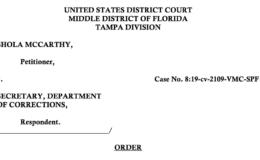In Butoh Dance / Suicide Case, Court Rules that Emails & Skype into Florida Create Jurisdiction Over Katsura Kan, Dance Instructor
- By : Cbh
- Category : Evidence, Jurisdiction, law & order

Can Florida obtain personal jurisdiction over someone just because he/she sent emails or Skyped with another person in Florida? In the unusual case of Tibor Stern, as personal representative of the Estate of Sharon Stern v. Terugoshi Kotoura a/k/a Katsura Kan, the answer is yes.
The Facts of the Case According to Court Orders/Opinions, News Articles, and YouTube
An adult student of a Japanese “dance of darkness” committed suicide in Broward County, Florida, allegedly due to mental abuse committed by her former dance instructor, Katsura Kan a/k/a Terugoshi Kotoura. In court pleadings filed by the decedent’s estate, the father alleges that Florida has jurisdiction over the Kan, located in Japan, because Kan sent emails into Florida and Skyped with the Decedent while in Florida. The underlying legal question of jurisdiction turns on whether Kan committed a tort in Florida by using email and Skype. After four years and at least one appeal, the court ruled it had jurisdiction.
The family accuses Kan of using “cult-like tactics to exploit and manipulate” the decedent, an adult who had studied at the University of Miami and at dance schools. According to the court order (below), “the Decedent emailed the Defendant from Florida… and told him ‘so now you please tell me how… please. need way to DIE. really.’ […] The Defendant sent her a response in Florida and told her to continue her research ‘in another world.’ She was found dead less than forty-eight hours later in Broward County.” According to a news story (below), the Decedent left a suicide note and the medical examiner concluded that the Decedent had asphyxiated herself using a suicide method she had found on the Internet.
A copy of the Amended Complaint is here. The question of jurisdiction originally went to the Fourth District Court of Appeal. That January 2016 opinion, which sent the case back to the trial court, is here.
The Miami Herald ran a detailed story, which quotes a number of emails, in May 2014, “Dancer who killed herself became lost in the dance.”
More recently, the Israeli news site, Haaretz, ran this story on May 10, 2018, “A One-person Cult? A Japanese Dance Master Accused of Driving a Student to Suicide.”
A YouTube video purportedly shows the instructor, Kan, dancing with the Decedent and proceeds to set out the case that Kan, through the intensity of the dance as well as other manipulations, allegedly caused the student’s death. The video also makes other allegations, including extortion and claiming that the instructor is pro-Hitler.
Give some consideration before watching the video, which you can find here.
An organization called Families Against Cult Teachings (F.A.C.T.) provides some additional information on its website, here.
Court Proceedings
On April 20, 2018, Judge Mily Rodriguez Powell ruled that there was jurisdiction over Kan because “the Plaintiff has shown that communications by email occurred between the Defendant and the Decedent in Florida” (a psychologist further testified that Defendant’s communications with the Decedent in Florida was a cause of death). The Court further accepted the Plaintiff’s testimony and evidence that Kan had Skyped with the Decedent in Florida and even knew he might be haled into Florida court since he allegedly told the father that he would face him “in Florida in the future.”
Judge Powell’s April 20, 2018 (corrected) Order is here.
According to the docket, the Plaintiff had moved for a default judgment however the Defendant filed a response claiming that he failed to receive it. The Court corrected some addresses for the recipient(s) and entered a corrected order. It appears that the Defendant’s Answer was due last week; presumably, the Plaintiff will again move for default. We will continue to monitor.
Significance for Litigants in Florida?
Prior cases have illustrated that (allegedly harmful) communications into Florida can create jurisdiction. Here, the communications were largely by email and at least a few via Skype. This case appears to be an extreme example, given the content of the communications as well as the apparent number of emails. If you are emailing with parties in Florida (or another state), particularly if you are aware where the recipient is located, there is a risk that such communications may lead to foreign courts having jurisdiction over you. Consult an attorney in your jurisdiction who is knowledgeable about these issues; thoughtful consumers might ask if the lawyer has fought these in evidentiary hearings and on appeal to confirm the lawyer’s experience.
Image Credit: Youtube


